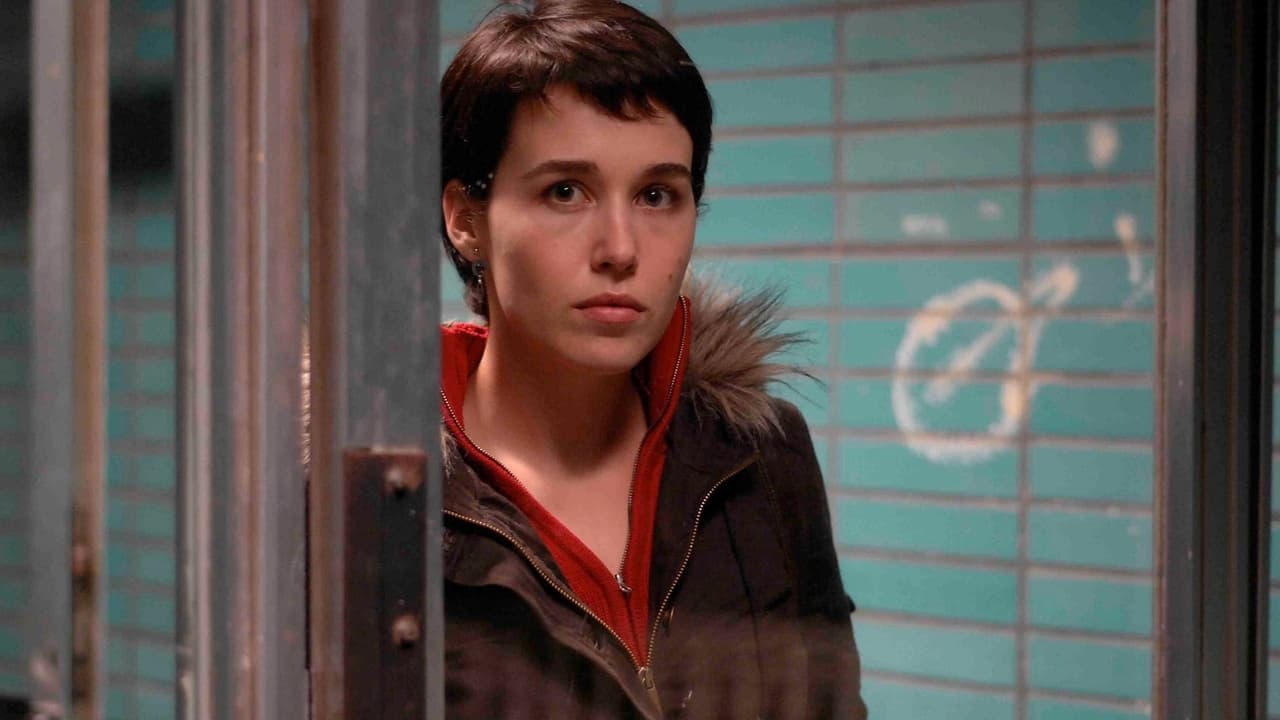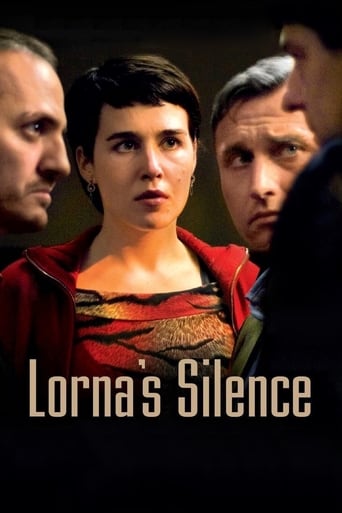

As usual, French Cinema scores quite well, and this movie is not exception. "Lorna's Silence" runs very well, especially the first 3/4 of the movie. We see the emotional beating the protagonist Lorna deals with as she's gotten herself in a jagged situation. The character development is well thought out, and her reactions to situations is believable and interesting. Arta Dobrowshi is magnetic on the screen. The underworld of drugs, crime, and fraud wears her down, and we witness her decline sympathetically. (spoiler) Towards the end of the movie, the dread and feeling of entrapment is tangible and clear. The only drawback for me was the resolution of the story, sort of cut-off. Still Recommended.
... View MoreCo-directors and co-screenwriters Jean Pierre and Luc Dardenne are perennial favorites from Cannes and other prestigious film festivals, and even though their most recent film Lorna's Silence disappointed to various fans of European art-house cinema, I liked it very much, mainly because of its hypnotic narrative and brilliant performances; both aspects seem simple and minimalistic on their shape, but they deeply express unexpected levels of complexity and emotion.The Dardenne bros. are obvious heirs of the thematic and stylistic legacy of the cinema from the French "new wave"; so, Lorna's Silence fits into the archetype of the deep and serious European cinema, whose intentions are very different to the ones we are accustomed to see in North American cinema.That may make the film a bit inaccessible to some people, but personally, I appreciated that very much, because it offers something different to the Hollywood drama and its predictable formulas.The only thing I could say against this movie is that I would have preferred the ending to be less ambiguous; nevertheless, that is a minor complaint.So, I very enthusiastically recommend Lorna's Silence to those people who are not afraid of watching a film which is very distant to what we are accustomed to see in Hollywood dramas.I admit that my expectations before watching Lorna's Silence were very low, because I usually do not like those sordid dramas about suffering and sadness which do not lead anywhere (such as, for example, The Burning Plain or 21 Grams).Now, I see that that perception can change when there are genuine filmmakers with the intention of enlarging our understanding of cinematographic art behind the cameras, instead of pretentious directors and screenwriters who desperately try to win the Oscar.In summary, Lorna's Silence is a powerful and memorable film experience which has a lot to offer to the spectator.
... View MoreLORNA'S SILENCE is a film that very quietly grabs you by the throat and makes you pay attention to the stories of several emigrants that spin out of control. It is written and directed by Jean-Pierre and Luc Dardenne with an eye for verismo in the seamier side of the immigration problems.The story is set in Belgium where Lorna (Arta Dobroshi) works at a dry cleaners then goes home to her 'husband' Claudy (Jérémie Renier), a junkie who has been duped by Lorna and her little crime gang of cab driver Fabio (Fabrizio Rongione) and her boyfriend Sokol (Alban Ukaj)into marrying Lorna so that the Albanian girl can gain Belgian citizenship. Claudy seems a hopeless case, in withdrawal for the umpteenth time but committed to getting off heroin. He pleads with his 'arranged wife' to help him with his attempt to get clean. Meanwhile Fabio has other plans: Lorna is to 'marry' a wealthy Russian mobster to gain Belgian citizenship (a second arranged marriage) and in order for the second marriage to occur, Lorna must consent to letting Claudy overdose on heroin and die, making her a widow eligible for marriage. The other side story is that Lorna, now a Belgian citizen, can proceed with Sokol to set up a snack shop with Sokol using all the money she gains from the 'marriage game'.All is well until Claudy convinces Lorna to help him get to a hospital and get 'clean' and along the way Lorna's feelings for Claudy turn to compassion and passion. An incident occurs that throws all of the plans to the wind and Lorna is left with her secret and will hopefully manage to find a stable life without the crime influence.The acting is first rate and the moody atmosphere created is spellbinding. This is a little film that has a lot to say about the plight of immigrants.Grady Harp
... View MoreBelgian film making brothers,Jean Pierre & Luc Dardenne have done it again. With a respective body of works that span some thirty,or so years,starting with some documentary shorts,mainly for Belgian television,to some toothsome fare,such as 'The Child (L'enfant)','Rosetta' & 'The Promise',they have crafted a well written portrait of an Albanian woman,named Lorna (played by Albanian actress, Arta Dobroshi),who is living in Brussels and trying to become a full time citizen (we are never told why she fled from Albania). She is married (in name only)to Claudy (played by Jeremie Renier)who is a junkie that is always looking for his next fix of Heroin. Her friend from back home,Sokol (played by fellow Albanian,Alban Ukaj)is always on the make for one money making scheme,after another (and most using Lorna as a means to an end). When Claudy dies from a Heroin overdose, it's up to Sokol to try & arrange another marriage for Lorna,this time to an Russian illegal immigrant. Does Loran go through with it,or does she finally get tired of Sokol's controlling ways? The film lives up to it's namesake in at least two ways (Lorna's life seems to be a closed book,plus the sparse use of music on the soundtrack is a metaphor,as well). The photography really works for this film (the film at times seems to be devoid of colour,to the extent that it seems to be shot in black & white,although Lorna herself seems to have a penchant for wearing the colour red a lot). This is a very well written & directed film from two brothers that know how to tell a story (as bleak as they tend to be,which usually always makes for great drama). Spoken in French,Albanian & Russian with English subtitles. Rated 'R' by the MPAA for some nudity,brief sexuality & language,and a bit of violence (but nothing too gory). Leave the little ones home (who would probably be bored by it,anyway,as the pacing is somewhat slow).
... View More